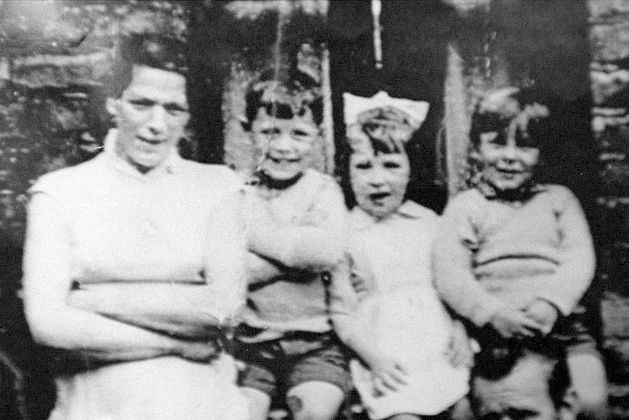Infra
Labour taking ‘right approach’ to legacy issues – Harris
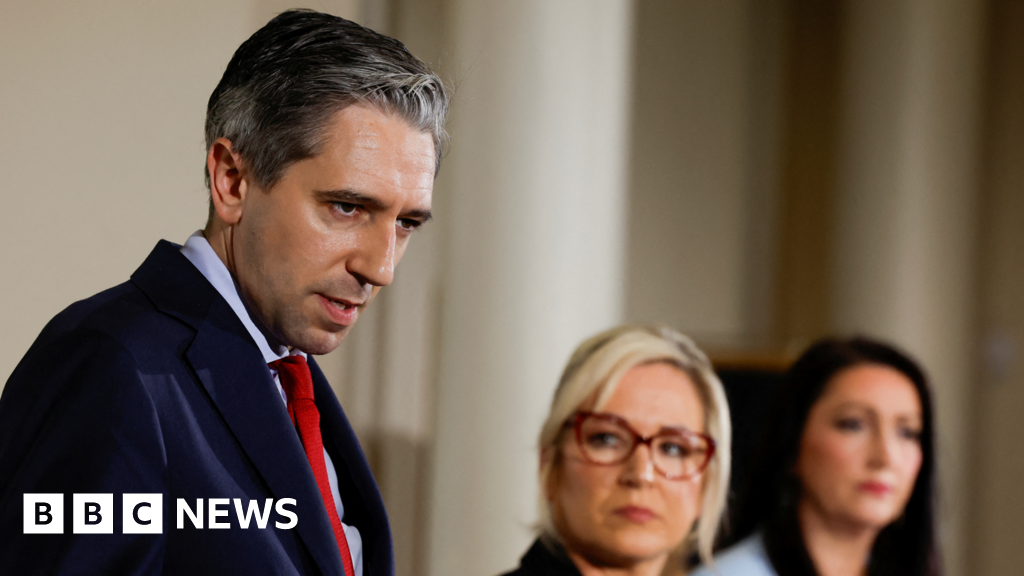
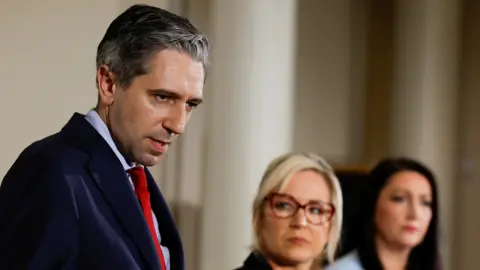 Reuters
ReutersLabour is taking the “right approach” when it comes to addressing outstanding legacy issues in Northern Ireland, the taoiseach (Irish Prime Minister) has said.
Simon Harris was speaking after hosting Stormont ministers in Dublin for the latest gathering of the North South Ministerial Council (NSMC) at Dublin Castle.
The body, which promotes cross-border co-operation, last met in Armagh in April.
It was the second full meeting of the council since Stormont was restored in Northern Ireland this year.
On Wednesday, the UK government announced an independent inquiry into the murder of Belfast solicitor Pat Finucane.
Unionist parties have accused the government of creating a “hierarchy of victims”.
The Northern Ireland Secretary, Hilary Benn, said that the “exceptional reason” of outstanding and unfulfilled commitments by previous UK governments to establish a public inquiry meant it should proceed.
Legislation passed by the previous Conservative government aimed to shut down investigations into Troubles-related killings, as well as civil cases and inquests.
There was widespread opposition to the law from Stormont, Dublin and various victims’ groups.
Part of the law aimed at granting conditional immunity to suspects in exchange for information was declared unlawful earlier this year, with Labour committing to repeal and replace the act.
However, the government has committed to retain a new investigative body set up under the legislation, known as the Independent Commission for Reconciliation and Information Recovery (ICRIR).
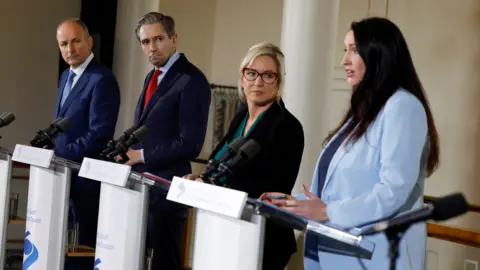 Reuters
Reuters‘A two-tier system’
Speaking after Friday’s North South Ministerial Council, Stormont’s Deputy First Minister Emma Little-Pengelly questioned Labour’s approach.
“The UK government has a responsibility to explain to those families (victims) why the system they’ve set out is good enough to investigate their loved ones’ deaths, but not the Finucane family,” she said.
“It does create the sense that there is a two-tier system.”
The taoiseach said he believed London was taking the “correct approach” on legacy in terms of listening and engaging.
“We do now have a government that has committed to taking a fresh look at legacy, as co-guarantors we’re eager to engage with that process,” added Harris.
“The Irish government won’t be found wanting, either, in relation to doing everything we possibly can – we stand ready to play our part.”
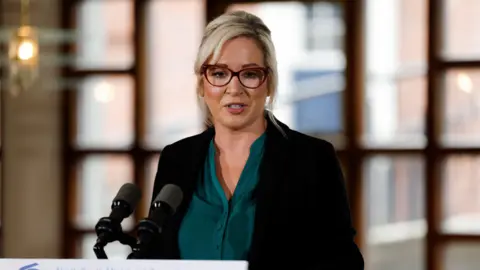 Reuters
ReutersFirst Minister Michelle O’Neill said politicians needed to ensure families were “not pitted against each other”.
“Labour have rubbished the fundamentally flawed Tory legislation, but it’s still not right.
“This needs to be got right once and for all, today’s young people are being burdened with yesterday.”
The Tánaiste (Irish Deputy PM) Micheál Martin said there had been “too much stop-start” on legacy issues.
“What we need to do now is collectively meet victims’ groups to hear what they have to say. It can’t be another couple of years before we get a framework in place.”
What else was on the agenda?
Infrastructure projects, including the A5 and Narrow Water Bridge, were also discussed by Stormont and Irish government ministers at Friday’s NSMC.
In February, the Irish government announced new funding worth €800m (£685m) towards cross-border projects, including those redevelopments and road upgrades.
Ministers were asked whether the UK government had indicated a date for announcing a decision on funding for the redevelopment of Casement Park in time for Euro 2028, but said that remained in the hands of the prime minister.
The four political leaders also praised what they described as a “reset” in relations between Stormont, Dublin and London since Labour took power in July.
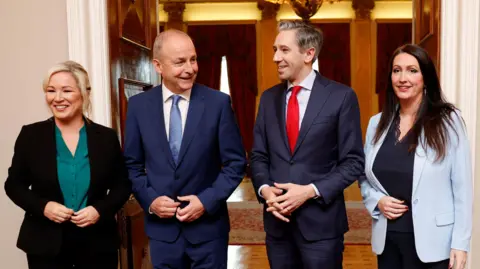 PA Media
PA MediaWhat is the the North South Ministerial Council?
It was set up under the 1998 Good Friday Agreement and involves ministers from Dublin and Stormont working together on “matters of mutual interest”.
The council covers six areas of co-operation: agriculture, education, environment, health, tourism and transport.
Common policies and approaches are agreed, but implemented separately in each jurisdiction.
The NSMC was last suspended when power-sharing at Stormont collapsed in 2022.
Prior to its collapse, DUP ministers had taken a decision to boycott the meetings in protest at the Northern Ireland Protocol, but this was ruled unlawful by the High Court.








